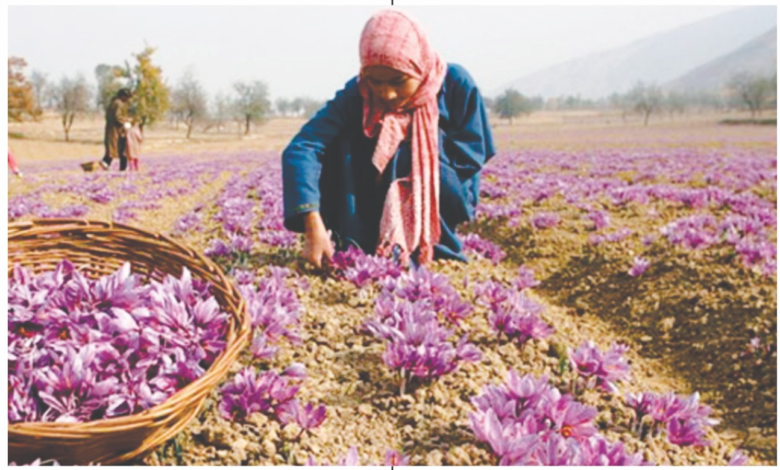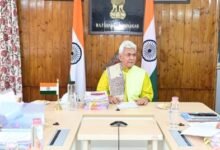Nurturing Prosperity: Lt. Governor Manoj Sinha’s Vision Transforms Rural Kashmir

Nurturing Prosperity: Lt. Governor Manoj Sinha’s Vision Transforms Rural Kashmir
Revolutionizing Agriculture, Handicrafts, and Entrepreneurship for Sustainable Growth
Shah Aijaz
Srinagar: In the embrace of tranquility, Lt. Governor Manoj Sinha spearheads a transformative journey in the Kashmir Valley, catalyzing social and economic development. From elevating agricultural practices to reinvigorating the handicraft industry and fostering entrepreneurship, his dynamic leadership paints a promising picture of prosperity in rural Kashmir.
Efforts to strengthen the rural economy of the valley are ongoing against the backdrop of steady improvement in peaceful conditions. Doing so will not only enhance the socio-economic development of UT but also help in uplifting the standard of living of the rural areas. It is a living fact that the rural economy of Kashmir is heavily dependent on agriculture and horticulture, hence the valley is also famous for high quality produce including saffron, apples, walnuts, almonds and cherries. However, the lack of modern agricultural practices, poor storage facilities and limited access to markets often deprived farmers of the profits they rightfully deserved. And the need to establish an efficient supply chain has been taken by the LG management to ensure that the farmers get a fair price for their produce. Moreover, the rural handicraft industry in Kashmir, famous for its exquisite carpets, shawls and woodwork, is an important source of livelihood for many people. However, the industry has been plagued by lack of innovation, competition from machine-made alternatives and limited access to domestic and international markets. To revive this sector, vocational training programs and introduction of modern design techniques and G-tagging are in progress. Moreover, ways are being explored for the government and the private sector to work together to promote these handicrafts in the national and international markets. The government needs to encourage entrepreneurship in the valley. Initiatives such as low-interest loans, mentoring programs, and business incubators can help foster a new generation of entrepreneurs who can create economic growth and employment opportunities in the Valley. Strengthening the rural economy in the Kashmir Valley is difficult but not insurmountable. This requires a comprehensive approach. Linking economic reforms with infrastructural development and focusing on new technological innovations is the key to success.





